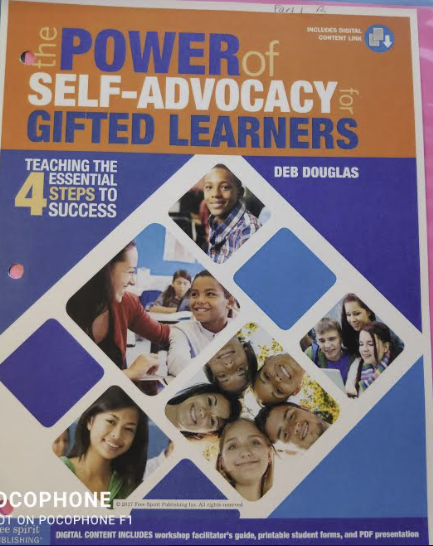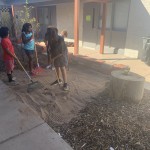This COVID year has highlighted some uniques needs in my classroom. As we are naturally concerned about supporting the academic and social needs of our most at-risk students, I noticed little to no attention was given to supporting these same needs in our gifted students. I became concerned that as we seek out an equitable distribution of resources, we minimize that distribution when it comes to our gifted population. Therefore, I decided to start taking courses that will help me become better equipped with providing in-class support to my gifted students. I am currently taking a course with GIFTEd (Pima County Schools) on supporting the social-emotional needs of gifted students.
I did not fully appreciate the role that society plays in the outcomes of gifted students. The text The Power of Self-Advocacy for Gifted Learners, by Deb Douglas, provides a description of the types of six types of gifted students. Upon reflection, I noticed the impact that society has on their lives seemed to affect their classification of giftedness more than their actual giftedness. Type I (Successful Learners) fits the stereotypes of a good student that satisfies societal expectations but may really be underachieving. Type II (Creative Learners) can be ostracized due to their refusal to conform to societal expectations. Type III (Underground Learners) may shun their giftedness because it does not fit into the expectations of their local or cultural groups. Type IV (At-Risk Learners) are angry due to society not being able to meet their needs for a variety of reasons. Type V (2E Learners) reside in a society that is not able to meet their diverse needs due to being identified as gifted and being disabled. Often, needs associated with the disability receive preference. Of all the groups of gifted students, Type VI (Autonomous Learners) was the only group identified as able to navigate systems to their advantage.
In order to develop to their fullest potential, all students in a Montessori class are encouraged to be Autonomous Learners and we prepare for this from the beginning. The Montessori environment itself advocates for the needs of gifted students, while also supporting them to be effective and contributing members of society (their classroom, school, family, and community). It allows the needs and strengths of the gifted child to surface. Students are encouraged to move on to the next level as they achieve and demonstrate mastery. They are involved in the who, what, when, where, how, and why of their academics. Learning occurs in the struggle and includes social-emotional mastery. Therefore, the child that blows through academics but struggles with social-emotional will focus more on the latter as the area for “learning”. In this case, academics become their area for comfort to relieve stress and provide a sense of safety. Students are encouraged to use their strengths to build their weaknesses. For example, students gifted in language but weak in math are encouraged to discuss and read the math concepts, then relate that to the numbers (seeing numbers as a representation of situations, ideas, and words).
By preparing the environment for the use and success of all persons that are in it, it naturally changes to meet the needs of who is present. Other resources that support student self-advocacy include:
- the proper preparation of the teacher and other adults in the class
- partnering with the student on academic and school culture
- student-led parent/teacher conferences
- ongoing communication with parents
- peer interactions
- time
- appropriate space
- opportunities to practice with appropriate levels of support
Although the focus of my current studies is to better support my gifted students, I was pleasantly surprised with the affirmation that their needs are similar to the needs of many of their peers. This allows me increased insight and intentionality regarding peer groupings, lessons, and so on.
If you are interested in expanding your horizon and sharpening your tools, I encourage you to check out the GIFTed link above and the upcoming events at the Arizona k12 Center. Upcoming events include:
- 16th Annual TLI: Where Curiosity and Leadership Unite (FREE!!!)
- National Board Pre-Candidacy Class (Funding Available)
- Beginning Teacher Series
- Camp Plug and Play 16.0
- Executive Director’s Book Club
Image is of the book The Power of Self-Advocacy for Gifted Learners, by Deb Douglas (2017), Free Spirit Publishing Inc.










Comments 1
I love Montessori learning. I wish more schools took advantage of this type of learning for all students. I took some credits to become gifted endorsed. It was sad to hear the statistics of the things that impact twice exceptional students and the lack of support for them.